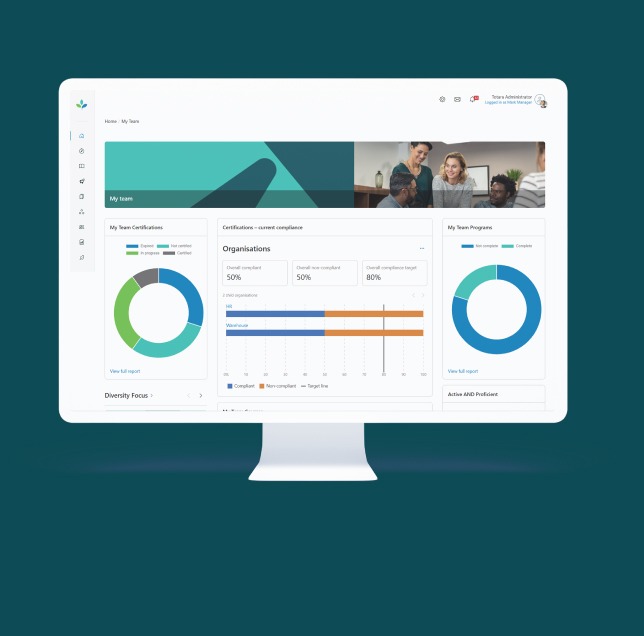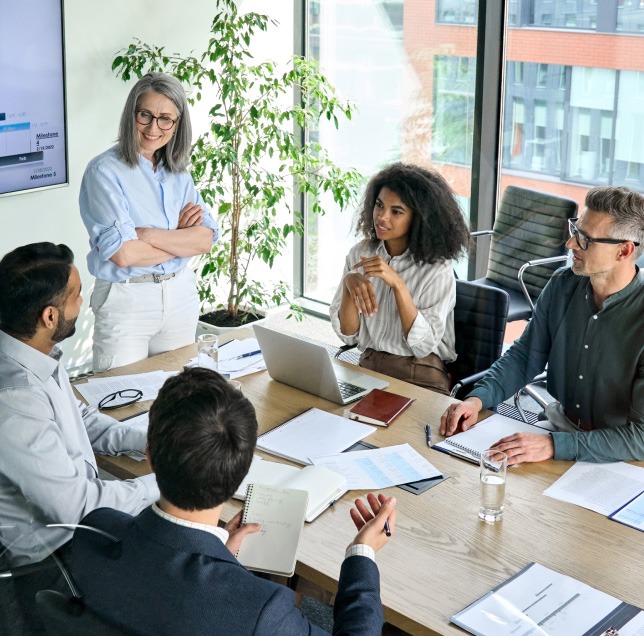Imagine you’re in art class at school. You’re trying to master watercolor painting, but you’re just not getting the hang of it. Your teacher comes around the classroom to see how everyone’s getting on, and you tell them you’re struggling to make it look good. Your teacher then sits with you for a couple of minutes to show you how to add a water wash to your paper, and how to add thin, light layers of color to create the effect you want.
The teacher then moves onto the next desk, where your classmate is frustrated to find that their colors are bleeding into one another. Your teacher shows them a technique to fix the color bleeding with a wet brush.
This is adaptive learning in action, and it’s something you would have experienced every day at school. Personalizing the learning experience for each student is an effective way to help people learn, so why not continue this idea into corporate training to create an adaptive learning organization?
What is an adaptive learning organization?
It’s no secret that organizations have had to adapt to a lot of change in the last year. That’s why industry analyst Josh Bersin believes that every company should strive to become an adaptive learning organization, with its three key practices for corporate training:
- Sensing – being tuned in to trends, understanding the learning impact and discovering learning needs
- Deciding – supporting talent mobility, cultivating flexible capacity and creating capability academies
- Evolving – analyzing emerging L&D technology, implementing learning in the flow of work and supporting agile practices
Taking the example of the art teacher, it’s understandable that very few organizations have the capacity for a real human to adapt the learning experience to every employee’s needs.
Educational psychologist Benjamin Bloom wrote about the 2 sigma problem back in 1984 – that is, that one-to-one, adaptive tutoring is the most effective teaching method, but as it’s so costly and time-intensive, it’s impossible to deliver at the scale required. That’s where adaptive learning technology comes in.
Put simply, adaptive learning technology adapts to the needs of each specific learner, whether that’s based on self-paced study, intelligent adjustment of content based on previous learning performance or immediate feedback. For instance, if you are onboarding two new employees, one may be an expert in your software system while the other is a beginner. In an adaptive learning organization, the expert will be able to skip the basic training and just prove their competence with a final assessment, while the beginner will take the full training program.
With this in mind, what are the main benefits of being an adaptive learning organization?
3 ways adaptive learning benefits corporate training
1. Adaptive learning organizations save money
Josh Bersin’s Adaptive Learning Organization research report reveals that companies with adaptive learning teams spend 27% less on L&D and deliver far greater business outcomes. This makes sense when you think about what adaptive learning offers. Instead of funneling every learner through the same program, you can save a lot of time by tailoring the learning program to each specific employee.
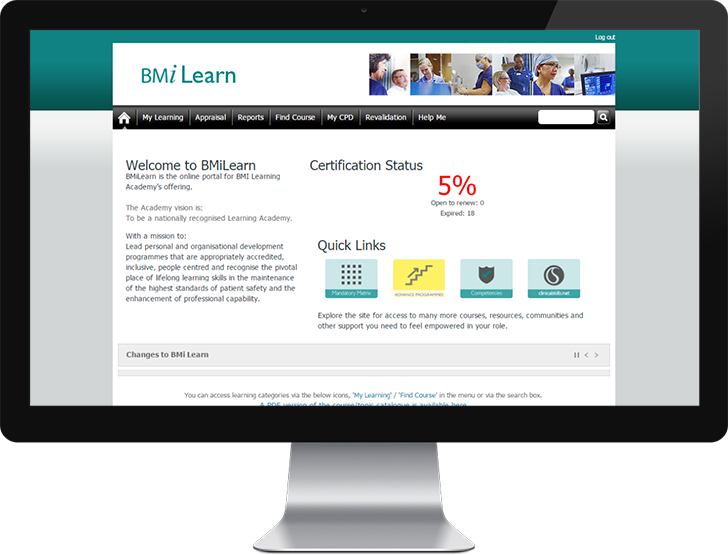
BMI Healthcare created a personalized learning solution to help target learners’ specific needs. They track what people search for on the LMS so they can design their corporate training around the in-demand topics, and use dynamic audiences to help employees move through the system automatically based on their experience and existing knowledge. Detailed profile questionnaires ensure that every single learning plan gets automatically updated with appropriate courses and verification dates. This adaptive approach to learning saves the organization over £800,000 a year on training.
2. Adaptive learning organizations are better equipped for growth
With adaptive learning organizations experiencing 53% higher growth than those without an adaptive approach, it is clear that implementing adaptive corporate training is hugely beneficial.
This makes a lot of sense. If corporate training adapts to your employees’ needs, it will keep your people agile, progressing faster and ready to deal with rapid change.
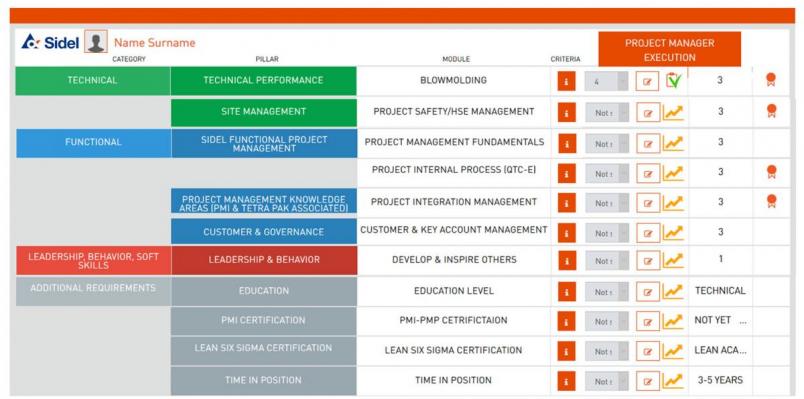
The Sidel Group created complex recurring training paths for field service engineer qualifications, based on different types of equipment and profiles. Within the LMS, a customized block was created for project managers to self-assess their ability level. Managers can then set expected ability levels for their employees, and the LMS automatically suggests content from the course catalog to help “bridge the gap” between their current and target ability level.
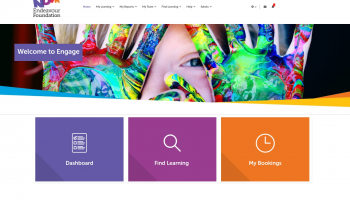
Another example is the Endeavour Foundation, which implemented personalized learning for 3,000 employees with Totara Learn. They used dynamic audiences to automatically generate mandatory and recommended courses for learners, which assign courses based on metadata such as the user’s role in the organization or pre-set competency standards. This metadata helped guide employees to the right learning at the right time, helping Endeavour Foundation achieve its goal of boosting engagement and participation across the organization.
3. Adaptive learning organizations boast better employee experiences
Again, Josh Bersin has some interesting research into how adaptive learning organizations provide better employee experiences. In his research report, he turned to workplace review site Glassdoor, where he found that adaptive learning organizations have…
- 14% higher reported career opportunities
- Senior leaders rated 15% higher by their employees
- 13% higher overall Glassdoor ratings
So what does this show us?
Employees are happier and more satisfied at work in adaptive learning organizations. When your learning adapts to your needs, you will get a much better learning experience than being forced down a one-size-fits-all learning path. Having tailored learning programs also supports employees in progressing in their careers, by guiding them towards content that will support them on their chosen development path.

Deloitte Accountancy’s The Client program is a great example of what organizations can do with adaptive corporate training. The program supports Deloitte’s accountants in adapting to an increasingly digitalized world, and it does that with adaptive learning. Personality assessments, formative questions and self-rated pre- and- post-assessment data gives deep insights into the way accountants are learning and engaging with the data, and helps tailor content to individual learners.
Start with adaptive learning technology
Adaptive learning organizations are, unsurprisingly, underpinned by adaptive (and adaptable) learning technology, such as Totara Learn.
Learning management systems such as Totara Learn give organizations the flexibility to create adaptive learning programs that grow with their people. Absolutely every employee in your organization comes with unique learning needs, prior experience and competencies, making adaptive learning the most effective way to address everyone’s requirements and help them progress.
Adaptive learning technologies like Totara Learn employ a variety of features and functionalities to support adaptive learning:
- Dynamic audiences to automatically assign learning, based on preset criteria such as job role, prior learning activity or competency level
- Conditional access to learning material, based on current course grade range, previous activity completion, user profile information and more
- Programs and certifications, using and, or and then conditions to guide learners through courses in adaptive learning paths and programs
- Course completion requirements, from automated tracking to self-marking completion status. Course completion blocks can be added to any course page, displaying a personalized summary of a user’s completion requirements, what they have achieved so far and what is left to complete
Alongside Totara Learn, the learning experience platform (LXP) Totara Engage supplements adaptive learning by allowing employees to take control of their learning. They can ask questions, contribute to discussions or explore other users’ resources to further personalize their learning experience, dig into their areas of interest and focus on building the knowledge and skills they need to succeed in their roles.




